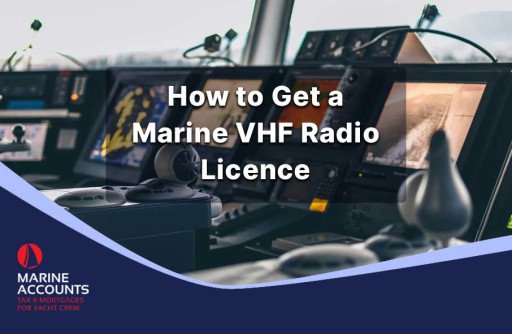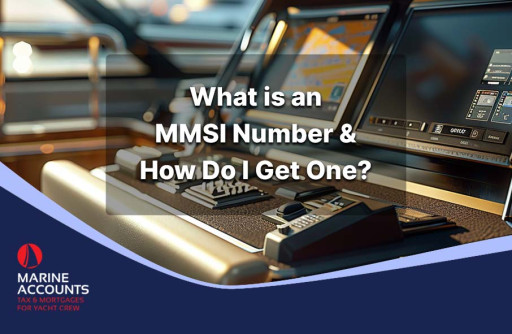What is the Digital Selective Calling Standard (DSC)?
- Authors
-
-

- Name
- Patrick Maflin
-
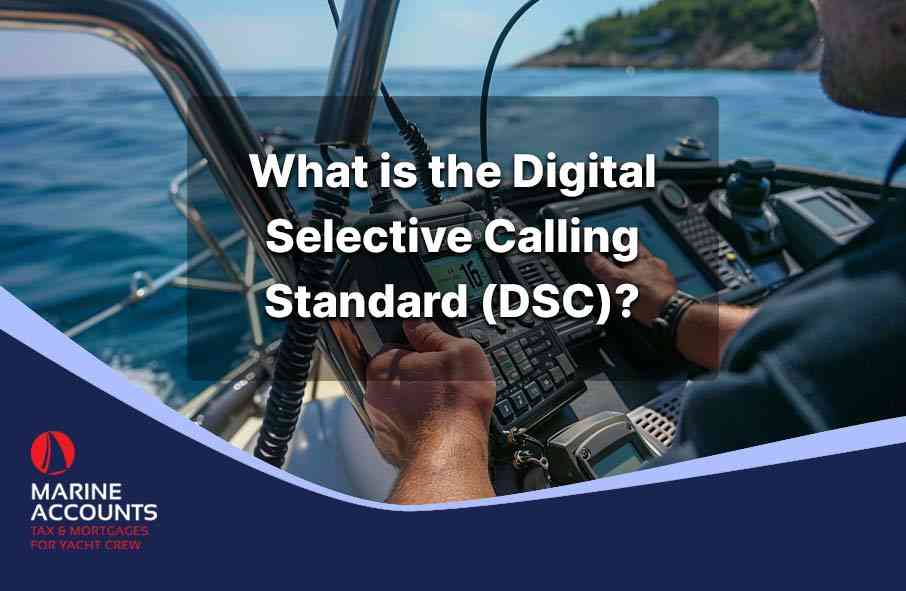
Safety at sea is important, and a key aspect is how distress signals are sent and received.
DSC was developed to replace voice calls in older procedures.
It uses a stable signal that has a narrow bandwidth and a slightly longer range, allowing for the distress signal to be sent very rapidly.
Chapters
- What is DSC (Digital Selective Calling)?
- Why was Digital Selective Calling (DSC) Developed?
- Benefits of DSC Alerts
- Undesignated Alerts vs Designated Alerts
- Frequently Asked Questions
- Conclusion
What is DSC (Digital Selective Calling)?
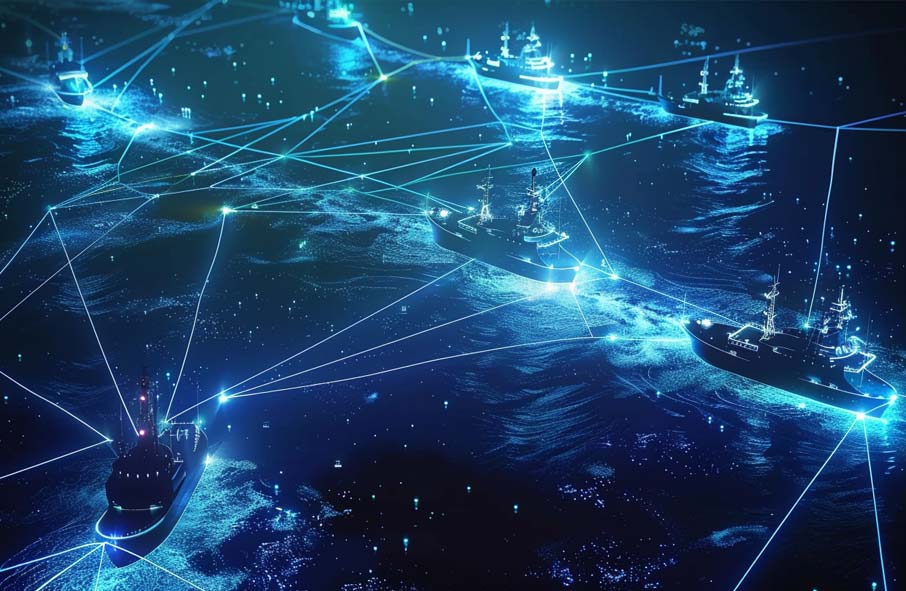
Digital Selective Calling (DSC) is a standard method used to transmit messages via VHF, MF and VF.
The primary use of DSC is to send distress calls to onshore systems, as well as to other sea vessels nearby.
DSC is thus of great importance to improve safety, and to support routine calls, besides those associated with urgency or distress.
With Digital Selective Calling you can both make as well as receive calls.
When a distress call is made, all the information will be automatically provided as soon as it interfaces with the receiving devices.
This includes the vessel’s identity and its MMSI number.
If the DSC is interfaced with a GPS (Global Positioning System), even the vessel’s current location will be sent.
As a result, response and rescue times can be minimised.
When a distress call is sent from a sea vessel via Digital Selective Calling (DSC), nearby shore stations as well as any other vessels that are equipped with a DSC will get an alarm call.
This alarm will be repeated until it gets acknowledged, thereby ensuring that it will not go unnoticed.
DSC has a narrow bandwidth and its own unique channel.
However all DSC-capable radios will be monitoring this channel automatically.
As a result, the conversation that follows can then be picked up by any VHF equipment that will be within range.
Why was Digital Selective Calling (DSC) Developed?
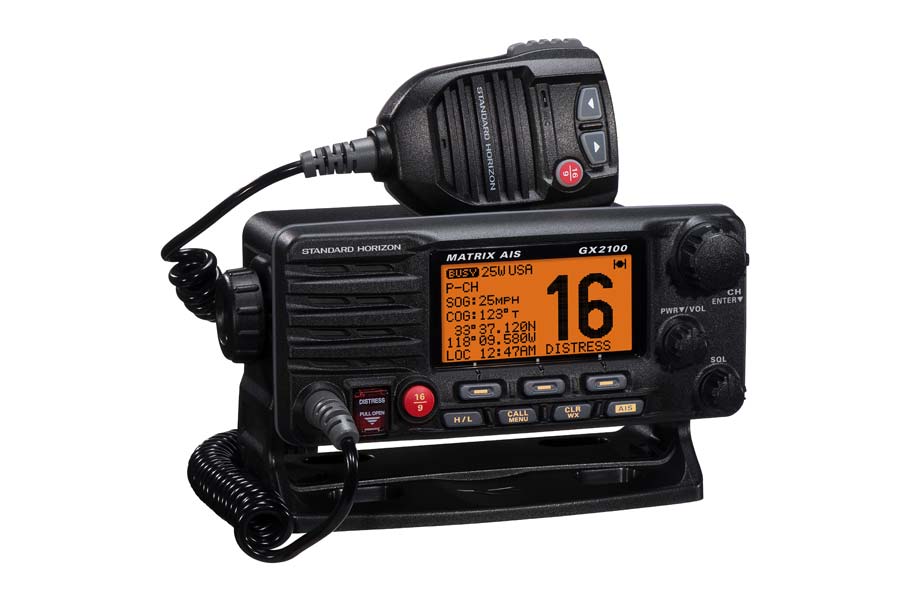 DSC Radio. Image credit: Standard Horizon
DSC Radio. Image credit: Standard Horizon
Digital Selective Calling (DSC) was developed primarily to send a digital call, or an alert, to one or more radio stations.
In some ways, DSC is quite similar to a pager.
It can send an alert to just one selected radio station at a time, or to all the stations that are within range.
Back in 1999, the International Convention for the Safety of Life at Sea (SOLAS) established that all passenger ships, cargo ships and any ships larger than 300 gross tonnage carried DSC-equipped radios.
There are many safety concerns associated with a lack of communications at sea, making it imperative to have a standard, and thus, this is where DSC became more important.
Benefits of DSC Alerts
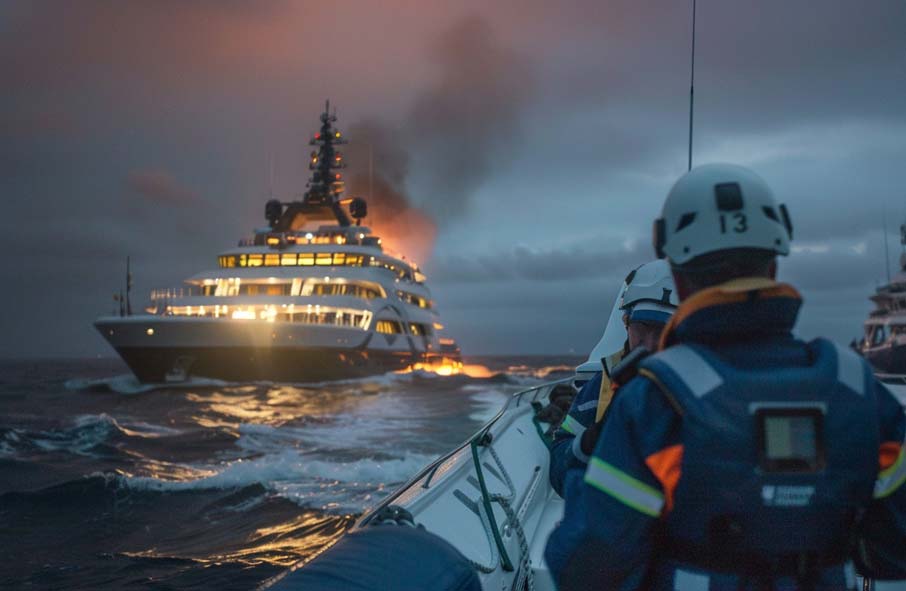
In a nutshell, the main advantages of DSC alerts include:
- In cases of emergency a distress alert will be sent quickly and efficiently since it includes all the necessary vessel information.
- The alert will be transmitted rapidly and repeatedly.
- Since the information is transmitted digitally using a dedicated frequency known as Channel 70, there is less room for error.
- DSC virtually guarantees that someone will get the alert.
Distress Alerts
A DSC distress alert allows for accurate and quick reporting of distress situations to another radio station which can provide assistance, or help in coordinating it.
Generally this will be one of the many Coastguard Maritime Rescue Coordination Centre (MRCC) locations.
In distress situations, the operator will use the ship’s DSC equipment in order to send what is known as an ‘all stations’ distress alert.
This is done simply by pressing one or two buttons.
In such a case all DSC receivers within range will sound the alarm as well as store the information that is received in memory.
This distress alert will continue to be transmitted repeatedly, every four minutes, until a DSC acknowledgement is received.
Such an alert should always be followed by a radiotelephone distress transmission utilising normal distress procedure.
Safety Broadcasts
Non-scheduled MSI broadcasts from coast stations and messages from ships will automatically generate an alert.
In this way such important information will not be missed.
Routine Calls
In order to call another vessel, their MMSI number will need to be inputted.
Then the VHF working channel is selected to send the call.
It can be considered like using a telephone, as both the originating radio and the one receiving the call will automatically switch to the chosen channel for the conversation to take place.
The procedure is very similar when calling coast stations and operations centres, but in this case it is the coast station that determines the working channel.
Group Calls
In cases when groups of vessels require the same information, a special group-call identity will be used to facilitate the broadcasted messages.
This is common in the case of club rallies and yacht races for example.
Undesignated Alerts vs Designated Alerts

Undesignated DSC distress alerts are sent very rapidly by just pressing one, or two buttons simultaneously.
The alert will be automatically transmitted on Channel 70 at that point, providing the MMSI number, along with the current or last known position of the vessel.
The time and date of when the alert was sent will also be received.
Designated alerts are very similar to undesignated, but since they are given a few more seconds, they will also include the type of distress in question.
This could be a vessel on fire, sinking, or involved in a collision for example.
Besides this message, there will also be the vessel’s MMSI number, position, and time and date when the alert is received.
Frequently Asked Questions
What is GMDSS (Global Maritime Distress & Safety System)?
The GMDSS is a maritime communications system for sea vessels.
It is not only used for emergency situations however.
It can be used for other routine communications, including vessel to vessel, vessel to shore, and shore to vessel communications.
All commercial vessels over 300 gross tons and some smaller vessels are required to fit GMDSS equipment.
This includes the DSC via radio as well as satellite communications, EPIRBs, SARTs and AIS-SARTs.
What is MMSI (Maritime Mobile Service Identity)?
The MMSI is a 9-digit number that is unique for a sea vessel.
It can be considered like the registration number of a vehicle, but in this case we are referring to sea vessels, allowing for this unique digit to be assigned to the vessel for identification purposes.
The MMSI number is assigned to the DSC radio or an AIS.
Since it is unique, another sea vessel or a shore station will be able to call the vessel using this number.
There are six categories for MMSI, namely, ship station, group ship station, coast station, group coast station, SAR aircraft and navigational aids and crafts.
To get an MMSI number, one will need to have a ship radio license.
Thereafter all radio equipment will operate under this MMSI.
My yacht's radio works fine so why upgrade to DSC?
The simple answer to this question is that DSC can be a lifesaver.
Distress alerts will include the precise position, and the alert can be sent in seconds.
Why do I have to take an update course for GMDSS?
It’s important to take an update course since DSC alerting procedures require additional knowledge.
Operators should know which alert is relevant to a particular situation.
Can yacht crew use the radio without GMDSS training?
Yes, yacht crew can use the radio as long as they do this under the supervision of a qualified GMDSS operator.
In most cases, only the specialist crew will be qualified to use the radio, namely the Yacht Captain, Officer of the Watch, First Officer, Chief Engineer and in certain cases the Second Officer.
Crew at deck level such as the Chief Steward, Bosun and Deckhands will not be qualified to use the radio.
However, having a working knowledge of the vessel’s emergency radio systems is always an advantage and helps to improve crew and passenger safety aboard the yacht.
Conclusion
DSC can literally be a lifesaver.
By pressing the appropriate button, you can make a distress call within seconds and the alert is repeated until it is given the due attention.
It is a very efficient system which greatly helps improve safety at sea.
Anyone considering getting into yachting will be at an advantage by taking an active interest in basic safety procedures such as radio communications before starting a job aboard a ship.
Getting qualified is not a necessity for entry level positions, but having a good working knowledge of these areas will put you at an advantage if you intend to find work at local marinas.
Disclaimer: Any advice in this publication is not intended or written by Marine Accounts to be used by a client or entity for the purpose of (i) avoiding penalties that may be imposed on any taxpayer or (ii) promoting, marketing or recommending to another party matters herein.




